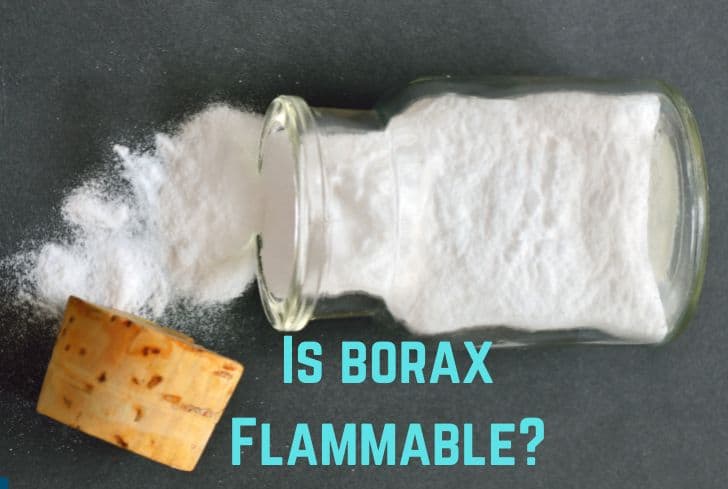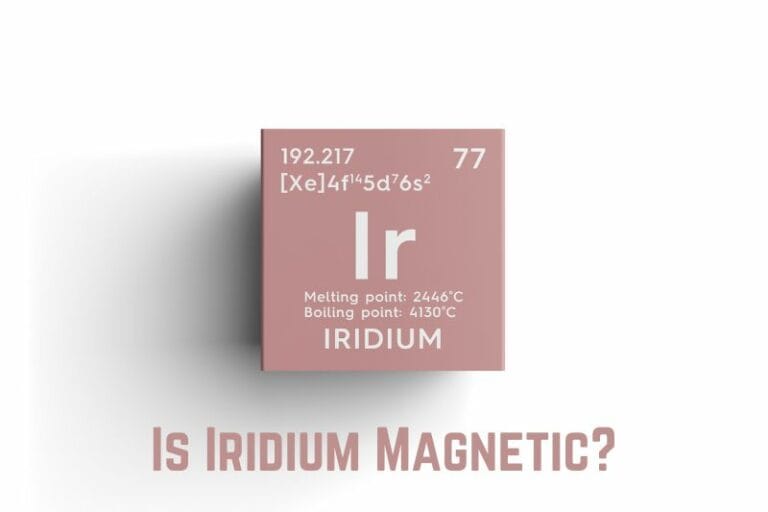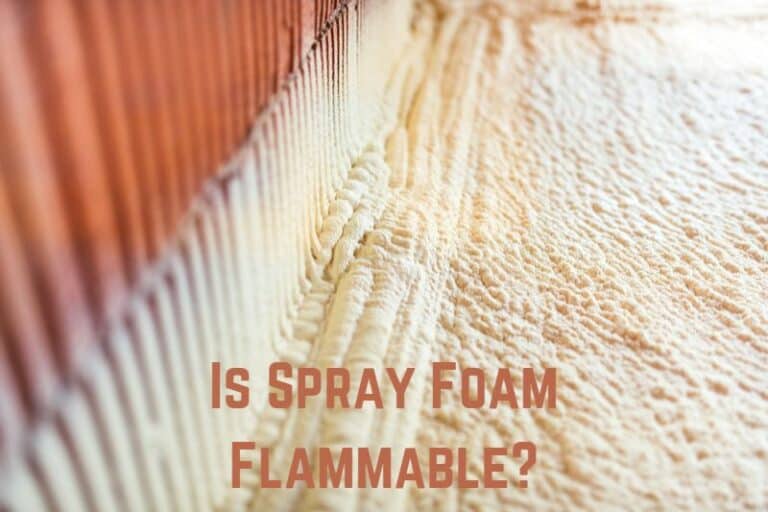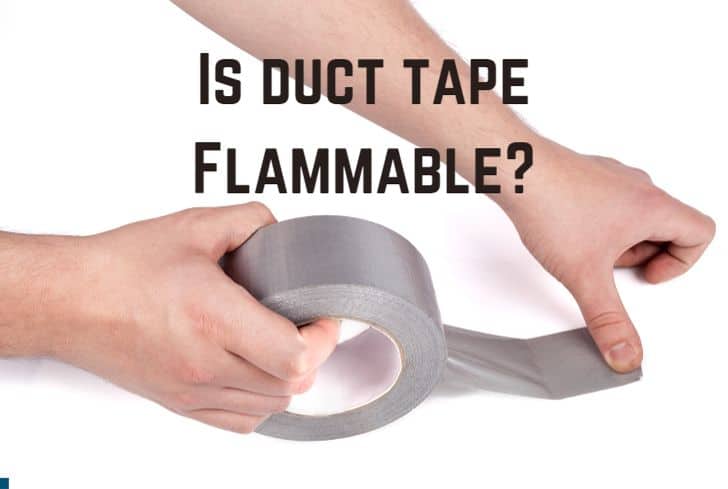Is Electrical Tape Waterproof? (Not Really…)
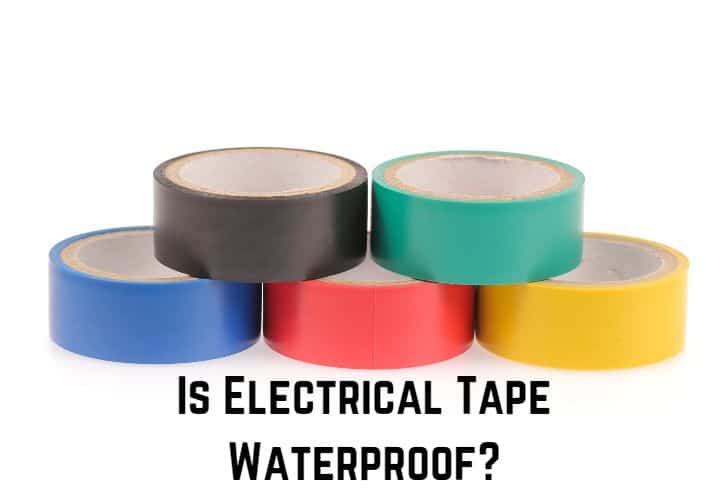
Electrical tape is a kind of pressure-sensitive tape that is used to insulate electrical wires and other conductive materials. It can be made up of a variety of materials, but PVC (polyvinyl chloride, also called “vinyl”) is the most popular choice due to its stretchability & insulation.
Have you ever wondered if electrical tapes are waterproof? In this article, we are going to discuss just that. We will begin by discussing their composition and types. Then we will look at their insulation and waterproof properties.
Is Electrical Tape Waterproof?
Electrical tapes are quite resistant to water, but they are not completely waterproof. There are different types of electrical tapes, and their composition determines the level of water resistance.
Electrical tape is a type of pressure-sensitive adhesive tape that is used to insulate electrical wires and other conductive materials. It is made from a variety of materials (such as vinyl, rubber, and silicone) and is designed to be highly resistant to heat, moisture & chemicals.
First, let us understand the difference between two commonly confused terms: waterproof and water resistant.
Waterproof means that the material is completely impervious to water. It can be fully submerged without getting damaged. For example, a waterproof raincoat may keep you dry even in heavy rain.
Water-resistant, on the other hand, means that the material can withstand some degree of exposure to water, but it is not completely impervious to it. For example, a water-resistant watch might resist some gentle splashing, but it may get damaged when fully submerged in water.
The water resistance of electrical tape depends upon its composition. Electrical tapes made up of vinyl or silicone are usually quite water-resistant, and in some cases, might even claim to be waterproof. They provide high resistance to water, even in damp and outdoor settings.
However, electrical tapes made up of other materials (such as cloth or paper) are not at all resistant to water. They should never be in wet environments as they lose their adhesive properties and even cause electrocution.
Therefore, it is always necessary to learn about the composition of a particular electrical tape to ensure that it is used in an appropriate setting with safety.
Different Types of Electrical Tapes
Based on composition, there are several different types of electrical tapes, such as:
- Polyvinyl Chloride Tape: This type of electrical tape is made from a thin layer of polyvinyl chloride plastic and coated with a rubber-based adhesive. It is waterproof, flexible, and convenient to use. However, polyvinyl chloride also has some disadvantages. For example, it doesn’t last long when exposed to sunlight or heat. Moreover, they should not be used around painted surfaces as they can cause paint peeling.
- Rubber Tape: Rubber tape is made from a rubber-based material with an adhesive on one side. This is an excellent electrical insulator and can be used for high-voltage connections. Rubber tape is also quite flexible and easy to use (can be cut with scissors). However, rubber tapes are not very resistant to heat, light, or UV. Since they come in limited colors, they are also not great for labeling.
- Mastic Tape: Mastic tape is made from a sticky, putty-like material. It is mostly used for insulating electrical connections, sealing pipes, and other applications. Mastic tape can be used to seal irregular surfaces. They are also quite durable and resistant to heat. However, they are messy to work with, as they are sticky. Moreover, they do not adhere effectively to all surfaces, especially if they are oily or dirty.
- Self-Amalgamating Tape: Self-amalgamating tape fuses itself when wrapped around an electrical connection, insulating it. The tape provides a tight, water-resistant seal that protects against moisture & other environmental factors. It is versatile, easy to use, and durable. However, the self-amalgamating tape does not adhere to many many surfaces easily and is only available in a few colors.
Electrical tapes also come in different colors, which help to specify their use. Generally, the white tape is used by electricians for insulation purposes. The other colors are used to indicate the voltage level and phase of the wire.
Black, red, white, and blue tapes are used in connections requiring low voltage. Orange and grey are used with high-voltage connections. Green and Green with yellow stripe tapes imply earthing or an isolated grounds connection.
Is Electrical Tape a Good Insulator?
Yes, electrical tape is a good insulator. Its primary purpose is to insulate electrical wires and connections, so the tape is designed to be highly resistant to electricity. However, the effectiveness of its insulation depends on the composition of the electrical tape.
The chief purpose of using electrical tape is insulation. By wrapping it around electrical wires or connections, we ensure that the connection does not electrocute anyone. Moreover, the tape ensures that wires do not accidentally come into contact with each other.
There are different types of electrical tapes, and their composition will determine their level of insulation. For example, rubber tape is best for high electrical insulation and is therefore used in high-voltage applications.
On the other hand, PVC tape is known more for its durability and resistance to moisture as well as UV radiation. So, depending on the requirements, one has to carefully pick the right kind of electrical tape.
Besides the composition of the tape, other factors like temperature, moisture, and water & tear, also determine the effectiveness of its insulation.
Is Electrical Tape the Same as Duct Tape?
No, electrical tape and duct tape are not the same. They are both types of adhesive tapes and also appear similar, but they are different properties. They are also meant for different purposes.
Duct tape is a pressure-sensitive tape that is backed by cloth or scrim material, often coated with polyethylene. It is a heavy-duty tape that has a strong adhesive and is known for its strength and durability.
These tapes can be used for a variety of purposes, such as patching holes in walls and furniture, fixing leaking pipes, or securing loose objects. The heat-resistant variant of duct tape can also be used for sealing heating and cooling ducts.
Electrical tape, on the other hand, is specifically designed for electrical applications. It has high electrical resistance to provide insulation to electrical connections, ensuring that they don’t electrocute people or accidentally touch other wires.
It is crucial to use the right kind of tape for the specific application. If you are using electrical tape for non-electrical applications (say, securing loose objects), it may not provide the necessary strength.
Similarly, using duct tape for electrical applications will not provide effective insulation and can cause safety hazards.
Uses of Electrical Tapes
Electrical tapes are used for a variety of purposes, such as:
- Insulation: The primary use of electrical tape is to wrap them around electrical wires and provide insulation. This protects humans against electrical shock and also prevents accidental contact with other wires or metal objects.
- Organization & Repair: Electrical tape can be used to secure and organize cables. By doing so, we can prevent the tangling of wires and reduce tripping hazards. Electrical tape can also be used to repair damaged wires, saving costs for replacement.
- Labeling: Different colors of electrical tape help to identify different wires or circuits. This makes it easier to address electrical problems. In industrial settings, there are a large number of wires and circuits to identify, so labeling is crucial.
- Protection: Electrical tape can help create a water-resistant seal around electrical connections, protecting them against moisture and corrosion. We can also warp them around the handles of tools for a more comfortable grip and to prevent slippage.
- Other Uses: Finally, electrical tape can also be used for masking and marking. For example, it can be used instead of masking tape to mark off certain areas.
Best Substitutes For Electrical Tape
If you are looking to insulate electrical wires and components, there are several substitutes for electrical tape:
- Heat-shrink Tube: This is a type of plastic tubing used to insulate and protect electrical connections. It is made from a heat-sensitive material that shrinks when heated, creating a tight seal around the electrical connection. Heat-shrink tubes provide a more permanent solution than electrical tape and are available in a variety of sizes.
- Silicone Tape: Silicone tape is a kind of self-fusing tape. It can be used for a variety of purposes, such as electrical insulation, plumbing, automotive repairs, etc. When wrapped around a connection, it creates a tight resistant seal, providing long-lasting insulation. Silicone tape is quite flexible and easy to apply too.
- Teflon Tape: This is a non-stick tape made from a thin film of polytetrafluoroethylene (PTFE). Teflon tape can be used for electrical insulation, plumbing, and other applications. It is also resistant to heat, moisture, and chemicals.
There are other substitutes too, such as liquid electrical tape, Kapton tape, etc.
Conclusion
In this article, we have discussed whether electrical tapes are waterproof or not. Depending on their composition and other factors (temperature, wear & tear, etc.), electrical tapes can be either water-resistant or not. However, they are never completely impervious to water. We also looked at different types of electrical tape and their substitutes.

